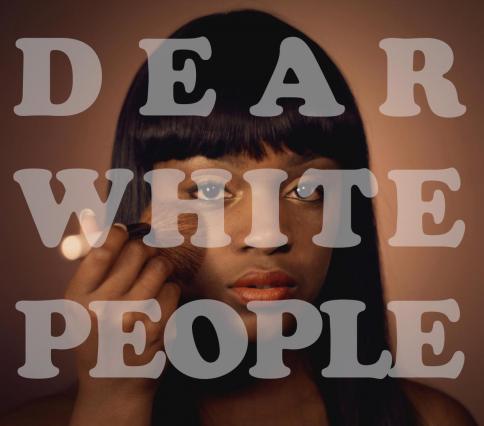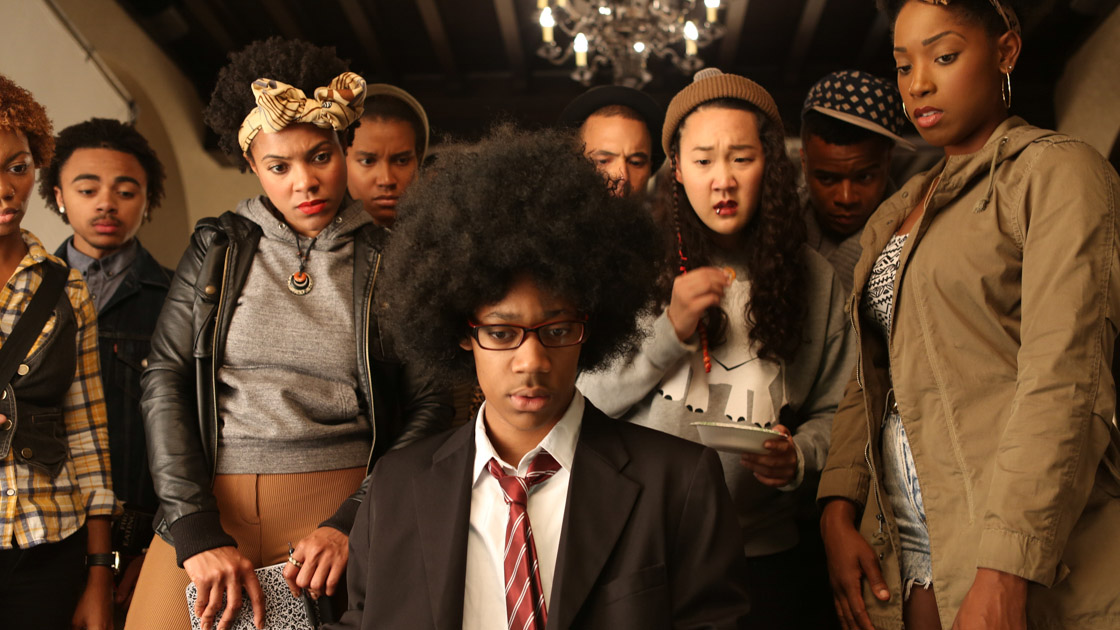 Our Sundance Film Festival coverage continues with Michael Cusumano on breakthrough talent winner "Dear White People"
Our Sundance Film Festival coverage continues with Michael Cusumano on breakthrough talent winner "Dear White People"
At the fictional Ivy League University of Westchester Samantha White (Tessa Thompson) hosts a radio show called ‘Dear White People’ in which she delivers a series of confrontational, button-pushing edicts directed at the school’s majority white population. For example:
Dear White People, the minimum requirement of black friends needed to not seem racist has been raised to two. Sorry, your weed man Tyrone doesn’t count.”
It’s sharp material, and Justin Simien’s Dear White People would have done well to apply the same biting insight to the rest of the film. [more...]

Siminen seems to be aiming to do for racial relations what Citizen Ruth did for the abortion battle, namely set himself up in the center of the battlefield and fire in all directions. Unfortunately, such a goal requires a merciless satiric edge that this film never musters. Dear White People is dragged down by an overabundance of earnestness. Nothing snuffs out the spark of comedy faster than a film getting all solemn about its message. Simien’s main point - that America is ignoring a great many underlying problems in our rush to declare racism over following the election of Barack Obama - is dead-on, but like a new college student it takes itself too seriously. We end up nodding thoughtfully when we should be blindsided by the film’s comedic daring.
It is revealed in a flash-forward that the story is going to end with an all-out race riot at a party where students are encouraged to show up in costumes inspired by the worst racial stereotypes. The waves of viral photographs of college-aged dumbasses in blackface can attest to the fact that these parties are a real occurrence. Dear White People wants it crescendo to a frenzied climax, sort of a collegiate Do the Right Thing, but that requires us to engage with the characters as more than walking political concepts, and too often Simien lets them lapse into being thinly veiled messengers for his ideas. At one point Thompson delivers a monologue about certain types of black behavior and the film dutifully cuts to the character who exists to embody each idea: the guy who modulates his blackness depending on the crowd he’s with, the woman who is willing to play up stereotypes for attention.
Despite the fact that Dear White People falls short of its hefty ambition I would not dissuade curious viewers from checking it out anyway. It’s got a lot of ideas bouncing around on the screen, and when one of them hits it makes wading through the misfires worth it. (A discussion over whether the presence of Whoopi Goldberg and Levar Burton is enough to qualify Star Trek TNG as a “black show” is a particular highlight). It’s also worth seeking out because it is a safe bet that this uniformly excellent young cast contains a good number of huge stars in the making. They have big careers ahead, likely in more fully realized films than Dear White People.
Grade: C+
Distribution: None yet